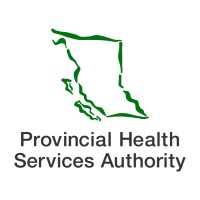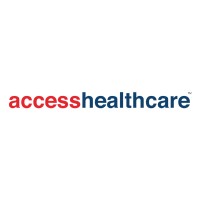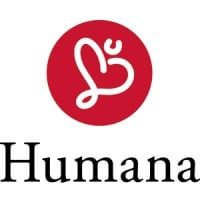
Lehigh Valley Health Network Company Cyber Security Posture
lvhn.orgLehigh Valley Health Network (LVHN) is proudly part of Jefferson Health, forming a leading integrated academic health care delivery system. With 65,000 colleagues, 32 hospitals and over 700 sites of care across the Lehigh Valley, northeastern Pennsylvania, Delaware Valley and southern New Jersey. LVHN’s mission is to heal, comfort and care for our community by providing advanced and compassionate health care, supported by education and clinical research. LVHN's rich history, spanning over 125 years, is rooted in a commitment to exceptional care and innovation. Our values—compassion, integrity, collaboration and excellence—guide us in delivering superior health care every day. LVHN’s Social Engagement Policy: The mission of LVHN’s social channels is to inspire, engage and inform our community about our services and to help you live a healthier life. We encourage healthy and productive conversation and welcome a diversity of opinions. However, we do not tolerate harassment, disparaging comments, profanity, libelous statements, malicious misinformation, political campaigning, spamming, solicitation, racism, hate speech or any other inappropriate behavior. We reserve the right to remove comments and ban users who participate in unproductive or harmful activities. Our goal is to maintain a respectful and supportive environment for everyone.
LVHN Company Details
lehigh-valley-hospital
11542 employees
59850.0
62
Hospitals and Health Care
lvhn.org
Scan still pending
LEH_4270706
In-progress
Between 800 and 900
This score is AI-generated and less favored by cyber insurers, who prefer the TPRM score.
 LVHN Global Score
LVHN Global Score.png)

Lehigh Valley Health Network Company Scoring based on AI Models
| Model Name | Date | Description | Current Score Difference | Score |
|---|---|---|---|---|
| AVERAGE-Industry | 03-12-2025 | This score represents the average cybersecurity rating of companies already scanned within the same industry. It provides a benchmark to compare an individual company's security posture against its industry peers. | N/A | Between 800 and 900 |
Lehigh Valley Health Network Company Cyber Security News & History
| Entity | Type | Severity | Impact | Seen | Url ID | Details | View |
|---|
Lehigh Valley Health Network Company Subsidiaries

Lehigh Valley Health Network (LVHN) is proudly part of Jefferson Health, forming a leading integrated academic health care delivery system. With 65,000 colleagues, 32 hospitals and over 700 sites of care across the Lehigh Valley, northeastern Pennsylvania, Delaware Valley and southern New Jersey. LVHN’s mission is to heal, comfort and care for our community by providing advanced and compassionate health care, supported by education and clinical research. LVHN's rich history, spanning over 125 years, is rooted in a commitment to exceptional care and innovation. Our values—compassion, integrity, collaboration and excellence—guide us in delivering superior health care every day. LVHN’s Social Engagement Policy: The mission of LVHN’s social channels is to inspire, engage and inform our community about our services and to help you live a healthier life. We encourage healthy and productive conversation and welcome a diversity of opinions. However, we do not tolerate harassment, disparaging comments, profanity, libelous statements, malicious misinformation, political campaigning, spamming, solicitation, racism, hate speech or any other inappropriate behavior. We reserve the right to remove comments and ban users who participate in unproductive or harmful activities. Our goal is to maintain a respectful and supportive environment for everyone.
Access Data Using Our API

Get company history
.png)
LVHN Cyber Security News
Hospital system to pay $65 million for dark web data leak, including images of nude cancer patients
Hospital system to pay $65 million for dark web data leak, including images of nude cancer patients. A Pennsylvania-based hospital network has ...
Lehigh Valley Health Network agrees to $65M settlement over ransomware attack that leaked nude photos
The proposed settlement hands out payments to class members ranging from $50 to $70,000, with those whose nude images were posted by hackers to ...
Lehigh Valley Health Network agrees on $65M settlement for victims of cyberattack from in Lackawanna County practice
According to the lawsuit, the health network will pay $65 million to victims of a cyberattack. In February of 2023, a cyber-criminal gang leaked ...
Health Network Reaches $65M Settlement Over Data Breach
Lehigh Valley Health Network has announced a tentative agreement to pay $65 million to those affected by a data breach last year, ...
Lehigh Valley Health Network to Pay $65 Million After Hackers Leaked Nude Photos of Cancer Patients
A Russian ransomware group released stolen data on its leak site, including patient diagnoses and clinical images of breast cancer patients.
Lehigh Valley Health Network Data Breach Victim Files Case
A cancer patient getting treatment at Lehigh Valley Health Network (LVHN), Allentown, Pennsylvania had filed a class action lawsuit against ...
LVHN reaches $65 million settlement over patient data breach. Here's what you need to do
The suit alleged that LVHN failed to adequately protect data it got from patients and health care providers whose personal information was ...
Lehigh Valley Health Network to pay $65M after nudes of patients leaked online
After a ransomware attack at Lehigh Valley Health Network (LVHN), nude photos of hundreds of patients ended up online.
Lehigh Valley Health Network Settle Class Action Case for $65M
Lehigh Valley Health Network settles $65M class action over 2023 ransomware attack that exposed sensitive patient information.

LVHN Similar Companies

Sentara Health
Sentara Health, an integrated, not-for-profit health care delivery system, celebrates more than 130 years in pursuit of its mission - "we improve health every day." Sentara is one of the largest health systems in the U.S. Mid-Atlantic and Southeast, and among the top 20 largest not-for-profit integr

Provincial Health Services Authority
Canada's first provincial health services authority. Provincial Health Services Authority (PHSA) is one of six health authorities – the other five health authorities serve geographic regions of BC. PHSA's primary role is to ensure that BC residents have access to a coordinated network of high-quali

COLISEE
Colisée, Europe's leading provider of care for the elderly, favours a person-centred approach to caring for the elderly, emphasising the importance of listening and respect. Since March 2021, as a company with a mission, Colisée has been committed to promoting quality ageing, based on three pill

NYU Langone Health
NYU Langone Health is a world-class integrated academic health system with a culture of exceptionalism. Vizient, Inc., has ranked NYU Langone the No. 1 comprehensive academic medical center in the country for three years in a row, and U.S. News & World Report recently placed nine of its clinical spe

Access Healthcare Services
Access Healthcare provides business process outsourcing, application services, and robotic process automation tools to hospitals, health systems, providers, payers, and related service providers. We operate from 20 delivery centers across nine cities in the US, India, and the Philippines, and our 2

Humana AB
Humana är ett ledande nordiskt omsorgsföretag som erbjuder tjänster inom individ- och familjeomsorg, personlig assistans, äldreomsorg och bostäder med särskild service enligt LSS. Humana har cirka 16 000 engagerade medarbetare i Sverige, Norge, Finland och Danmark som utför omsorgstjänster

Frequently Asked Questions (FAQ) on Cybersecurity Incidents
LVHN CyberSecurity History Information
Total Incidents: According to Rankiteo, LVHN has faced 0 incidents in the past.
Incident Types: As of the current reporting period, LVHN has not encountered any cybersecurity incidents.
Total Financial Loss: The total financial loss from these incidents is estimated to be {total_financial_loss}.
Cybersecurity Posture: The company's overall cybersecurity posture is described as Lehigh Valley Health Network (LVHN) is proudly part of Jefferson Health, forming a leading integrated academic health care delivery system. With 65,000 colleagues, 32 hospitals and over 700 sites of care across the Lehigh Valley, northeastern Pennsylvania, Delaware Valley and southern New Jersey. LVHN’s mission is to heal, comfort and care for our community by providing advanced and compassionate health care, supported by education and clinical research. LVHN's rich history, spanning over 125 years, is rooted in a commitment to exceptional care and innovation. Our values—compassion, integrity, collaboration and excellence—guide us in delivering superior health care every day. LVHN’s Social Engagement Policy: The mission of LVHN’s social channels is to inspire, engage and inform our community about our services and to help you live a healthier life. We encourage healthy and productive conversation and welcome a diversity of opinions. However, we do not tolerate harassment, disparaging comments, profanity, libelous statements, malicious misinformation, political campaigning, spamming, solicitation, racism, hate speech or any other inappropriate behavior. We reserve the right to remove comments and ban users who participate in unproductive or harmful activities. Our goal is to maintain a respectful and supportive environment for everyone..
Detection and Response: The company detects and responds to cybersecurity incidents through {description_of_detection_and_response_process}.
Incident Details
Incident 1: Ransomware Attack
Title: {Incident_Title}
Description: {Brief_description_of_the_incident}
Date Detected: {Detection_Date}
Date Publicly Disclosed: {Disclosure_Date}
Date Resolved: {Resolution_Date}
Type: {Type_of_Attack}
Attack Vector: {Attack_Vector}
Vulnerability Exploited: {Vulnerability}
Threat Actor: {Threat_Actor}
Motivation: {Motivation}
Incident 2: Data Breach
Title: {Incident_Title}
Description: {Brief_description_of_the_incident}
Date Detected: {Detection_Date}
Date Publicly Disclosed: {Disclosure_Date}
Date Resolved: {Resolution_Date}
Type: {Type_of_Attack}
Attack Vector: {Attack_Vector}
Vulnerability Exploited: {Vulnerability}
Threat Actor: {Threat_Actor}
Motivation: {Motivation}
Common Attack Types: As of now, the company has not encountered any reported incidents involving common cyberattacks.
Identification of Attack Vectors: The company identifies the attack vectors used in incidents through {description_of_identification_process}.
Impact of the Incidents
Incident 1: Ransomware Attack
Financial Loss: {Financial_Loss}
Data Compromised: {Data_Compromised}
Systems Affected: {Systems_Affected}
Downtime: {Downtime}
Operational Impact: {Operational_Impact}
Conversion Rate Impact: {Conversion_Rate_Impact}
Revenue Loss: {Revenue_Loss}
Customer Complaints: {Customer_Complaints}
Brand Reputation Impact: {Brand_Reputation_Impact}
Legal Liabilities: {Legal_Liabilities}
Identity Theft Risk: {Identity_Theft_Risk}
Payment Information Risk: {Payment_Information_Risk}
Incident 2: Data Breach
Financial Loss: {Financial_Loss}
Data Compromised: {Data_Compromised}
Systems Affected: {Systems_Affected}
Downtime: {Downtime}
Operational Impact: {Operational_Impact}
Conversion Rate Impact: {Conversion_Rate_Impact}
Revenue Loss: {Revenue_Loss}
Customer Complaints: {Customer_Complaints}
Brand Reputation Impact: {Brand_Reputation_Impact}
Legal Liabilities: {Legal_Liabilities}
Identity Theft Risk: {Identity_Theft_Risk}
Payment Information Risk: {Payment_Information_Risk}
Average Financial Loss: The average financial loss per incident is {average_financial_loss}.
Commonly Compromised Data Types: The types of data most commonly compromised in incidents are {list_of_commonly_compromised_data_types}.
Incident 1: Ransomware Attack
Entity Name: {Entity_Name}
Entity Type: {Entity_Type}
Industry: {Industry}
Location: {Location}
Size: {Size}
Customers Affected: {Customers_Affected}
Incident 2: Data Breach
Entity Name: {Entity_Name}
Entity Type: {Entity_Type}
Industry: {Industry}
Location: {Location}
Size: {Size}
Customers Affected: {Customers_Affected}
Response to the Incidents
Incident 1: Ransomware Attack
Incident Response Plan Activated: {Yes/No}
Third Party Assistance: {Yes/No}
Law Enforcement Notified: {Yes/No}
Containment Measures: {Containment_Measures}
Remediation Measures: {Remediation_Measures}
Recovery Measures: {Recovery_Measures}
Communication Strategy: {Communication_Strategy}
Adaptive Behavioral WAF: {Adaptive_Behavioral_WAF}
On-Demand Scrubbing Services: {On_Demand_Scrubbing_Services}
Network Segmentation: {Network_Segmentation}
Enhanced Monitoring: {Enhanced_Monitoring}
Incident 2: Data Breach
Incident Response Plan Activated: {Yes/No}
Third Party Assistance: {Yes/No}
Law Enforcement Notified: {Yes/No}
Containment Measures: {Containment_Measures}
Remediation Measures: {Remediation_Measures}
Recovery Measures: {Recovery_Measures}
Communication Strategy: {Communication_Strategy}
Adaptive Behavioral WAF: {Adaptive_Behavioral_WAF}
On-Demand Scrubbing Services: {On_Demand_Scrubbing_Services}
Network Segmentation: {Network_Segmentation}
Enhanced Monitoring: {Enhanced_Monitoring}
Incident Response Plan: The company's incident response plan is described as {description_of_incident_response_plan}.
Third-Party Assistance: The company involves third-party assistance in incident response through {description_of_third_party_involvement}.
Data Breach Information
Incident 2: Data Breach
Type of Data Compromised: {Type_of_Data}
Number of Records Exposed: {Number_of_Records}
Sensitivity of Data: {Sensitivity_of_Data}
Data Exfiltration: {Yes/No}
Data Encryption: {Yes/No}
File Types Exposed: {File_Types}
Personally Identifiable Information: {Yes/No}
Prevention of Data Exfiltration: The company takes the following measures to prevent data exfiltration: {description_of_prevention_measures}.
Handling of PII Incidents: The company handles incidents involving personally identifiable information (PII) through {description_of_handling_process}.
Ransomware Information
Incident 1: Ransomware Attack
Ransom Demanded: {Ransom_Amount}
Ransom Paid: {Ransom_Paid}
Ransomware Strain: {Ransomware_Strain}
Data Encryption: {Yes/No}
Data Exfiltration: {Yes/No}
Ransom Payment Policy: The company's policy on paying ransoms in ransomware incidents is described as {description_of_ransom_payment_policy}.
Data Recovery from Ransomware: The company recovers data encrypted by ransomware through {description_of_data_recovery_process}.
Regulatory Compliance
Incident 1: Ransomware Attack
Regulations Violated: {Regulations_Violated}
Fines Imposed: {Fines_Imposed}
Legal Actions: {Legal_Actions}
Regulatory Notifications: {Regulatory_Notifications}
Incident 2: Data Breach
Regulations Violated: {Regulations_Violated}
Fines Imposed: {Fines_Imposed}
Legal Actions: {Legal_Actions}
Regulatory Notifications: {Regulatory_Notifications}
Regulatory Frameworks: The company complies with the following regulatory frameworks regarding cybersecurity: {list_of_regulatory_frameworks}.
Ensuring Regulatory Compliance: The company ensures compliance with regulatory requirements through {description_of_compliance_measures}.
Lessons Learned and Recommendations
Incident 1: Ransomware Attack
Lessons Learned: {Lessons_Learned}
Incident 2: Data Breach
Lessons Learned: {Lessons_Learned}
Incident 1: Ransomware Attack
Recommendations: {Recommendations}
Incident 2: Data Breach
Recommendations: {Recommendations}
Key Lessons Learned: The key lessons learned from past incidents are {list_of_key_lessons_learned}.
Implemented Recommendations: The company has implemented the following recommendations to improve cybersecurity: {list_of_implemented_recommendations}.
References
Additional Resources: Stakeholders can find additional resources on cybersecurity best practices at {list_of_additional_resources}.
Investigation Status
Incident 1: Ransomware Attack
Investigation Status: {Investigation_Status}
Incident 2: Data Breach
Investigation Status: {Investigation_Status}
Communication of Investigation Status: The company communicates the status of incident investigations to stakeholders through {description_of_communication_process}.
Stakeholder and Customer Advisories
Incident 1: Ransomware Attack
Stakeholder Advisories: {Stakeholder_Advisories}
Customer Advisories: {Customer_Advisories}
Incident 2: Data Breach
Stakeholder Advisories: {Stakeholder_Advisories}
Customer Advisories: {Customer_Advisories}
Advisories Provided: The company provides the following advisories to stakeholders and customers following an incident: {description_of_advisories_provided}.
Initial Access Broker
Incident 1: Ransomware Attack
Entry Point: {Entry_Point}
Reconnaissance Period: {Reconnaissance_Period}
Backdoors Established: {Backdoors_Established}
High Value Targets: {High_Value_Targets}
Data Sold on Dark Web: {Yes/No}
Incident 2: Data Breach
Entry Point: {Entry_Point}
Reconnaissance Period: {Reconnaissance_Period}
Backdoors Established: {Backdoors_Established}
High Value Targets: {High_Value_Targets}
Data Sold on Dark Web: {Yes/No}
Monitoring and Mitigation of Initial Access Brokers: The company monitors and mitigates the activities of initial access brokers through {description_of_monitoring_and_mitigation_measures}.
Post-Incident Analysis
Incident 1: Ransomware Attack
Root Causes: {Root_Causes}
Corrective Actions: {Corrective_Actions}
Incident 2: Data Breach
Root Causes: {Root_Causes}
Corrective Actions: {Corrective_Actions}
Post-Incident Analysis Process: The company's process for conducting post-incident analysis is described as {description_of_post_incident_analysis_process}.
Corrective Actions Taken: The company has taken the following corrective actions based on post-incident analysis: {list_of_corrective_actions_taken}.
Additional Questions
General Information
Ransom Payment History: The company has {paid/not_paid} ransoms in the past.
Last Ransom Demanded: The amount of the last ransom demanded was {last_ransom_amount}.
Last Attacking Group: The attacking group in the last incident was {last_attacking_group}.
Incident Details
Most Recent Incident Detected: The most recent incident detected was on {most_recent_incident_detected_date}.
Most Recent Incident Publicly Disclosed: The most recent incident publicly disclosed was on {most_recent_incident_publicly_disclosed_date}.
Most Recent Incident Resolved: The most recent incident resolved was on {most_recent_incident_resolved_date}.
Impact of the Incidents
Highest Financial Loss: The highest financial loss from an incident was {highest_financial_loss}.
Most Significant Data Compromised: The most significant data compromised in an incident was {most_significant_data_compromised}.
Most Significant System Affected: The most significant system affected in an incident was {most_significant_system_affected}.
Response to the Incidents
Third-Party Assistance in Most Recent Incident: The third-party assistance involved in the most recent incident was {third_party_assistance_in_most_recent_incident}.
Containment Measures in Most Recent Incident: The containment measures taken in the most recent incident were {containment_measures_in_most_recent_incident}.
Data Breach Information
Most Sensitive Data Compromised: The most sensitive data compromised in a breach was {most_sensitive_data_compromised}.
Number of Records Exposed: The number of records exposed in the most significant breach was {number_of_records_exposed}.
Ransomware Information
Highest Ransom Demanded: The highest ransom demanded in a ransomware incident was {highest_ransom_demanded}.
Highest Ransom Paid: The highest ransom paid in a ransomware incident was {highest_ransom_paid}.
Regulatory Compliance
Highest Fine Imposed: The highest fine imposed for a regulatory violation was {highest_fine_imposed}.
Most Significant Legal Action: The most significant legal action taken for a regulatory violation was {most_significant_legal_action}.
Lessons Learned and Recommendations
Most Significant Lesson Learned: The most significant lesson learned from past incidents was {most_significant_lesson_learned}.
Most Significant Recommendation Implemented: The most significant recommendation implemented to improve cybersecurity was {most_significant_recommendation_implemented}.
References
Most Recent Source: The most recent source of information about an incident is {most_recent_source}.
Most Recent URL for Additional Resources: The most recent URL for additional resources on cybersecurity best practices is {most_recent_url}.
Investigation Status
Current Status of Most Recent Investigation: The current status of the most recent investigation is {current_status_of_most_recent_investigation}.
Stakeholder and Customer Advisories
Most Recent Stakeholder Advisory: The most recent stakeholder advisory issued was {most_recent_stakeholder_advisory}.
Most Recent Customer Advisory: The most recent customer advisory issued was {most_recent_customer_advisory}.
Initial Access Broker
Most Recent Entry Point: The most recent entry point used by an initial access broker was {most_recent_entry_point}.
Most Recent Reconnaissance Period: The most recent reconnaissance period for an incident was {most_recent_reconnaissance_period}.
Post-Incident Analysis
Most Significant Root Cause: The most significant root cause identified in post-incident analysis was {most_significant_root_cause}.
Most Significant Corrective Action: The most significant corrective action taken based on post-incident analysis was {most_significant_corrective_action}.
What Do We Measure?
















Every week, Rankiteo analyzes billions of signals to give organizations a sharper, faster view of emerging risks. With deeper, more actionable intelligence at their fingertips, security teams can outpace threat actors, respond instantly to Zero-Day attacks, and dramatically shrink their risk exposure window.
These are some of the factors we use to calculate the overall score:
Identify exposed access points, detect misconfigured SSL certificates, and uncover vulnerabilities across the network infrastructure.
Gain visibility into the software components used within an organization to detect vulnerabilities, manage risk, and ensure supply chain security.
Monitor and manage all IT assets and their configurations to ensure accurate, real-time visibility across the company's technology environment.
Leverage real-time insights on active threats, malware campaigns, and emerging vulnerabilities to proactively defend against evolving cyberattacks.




